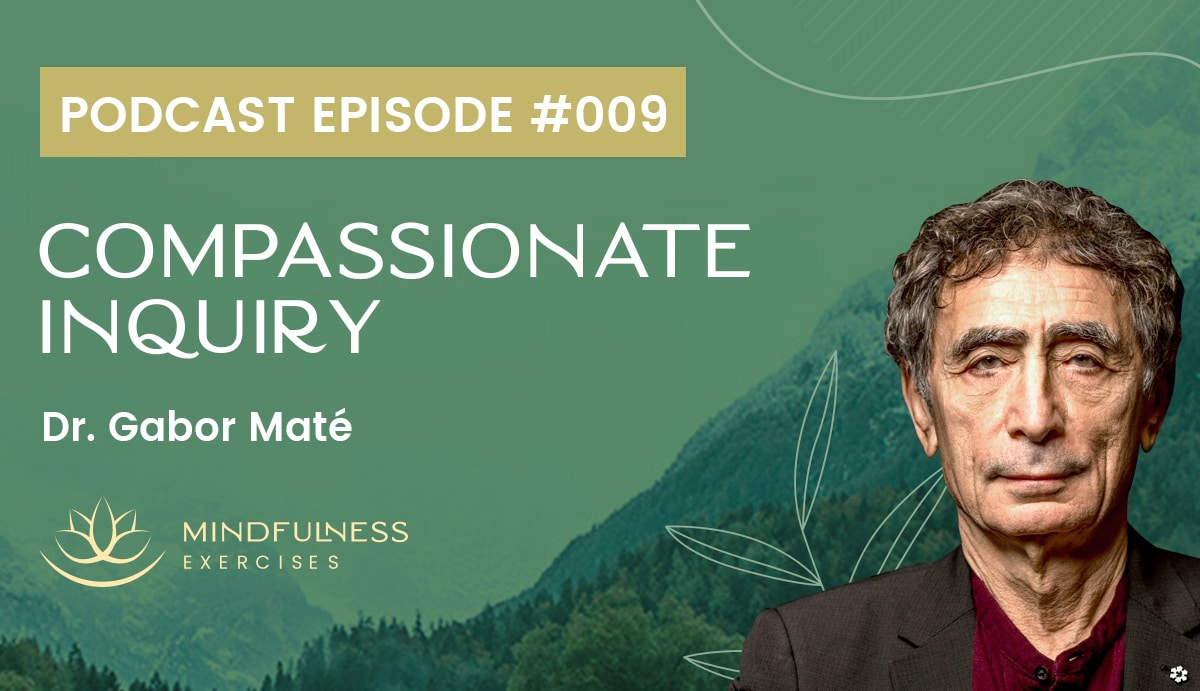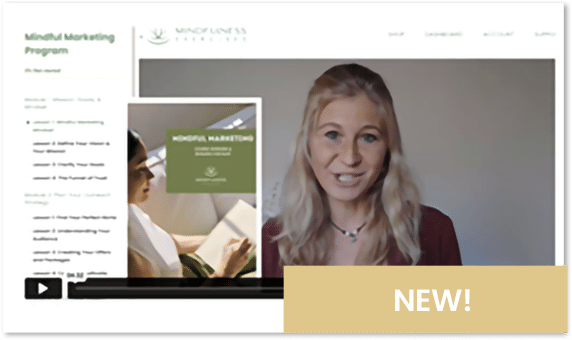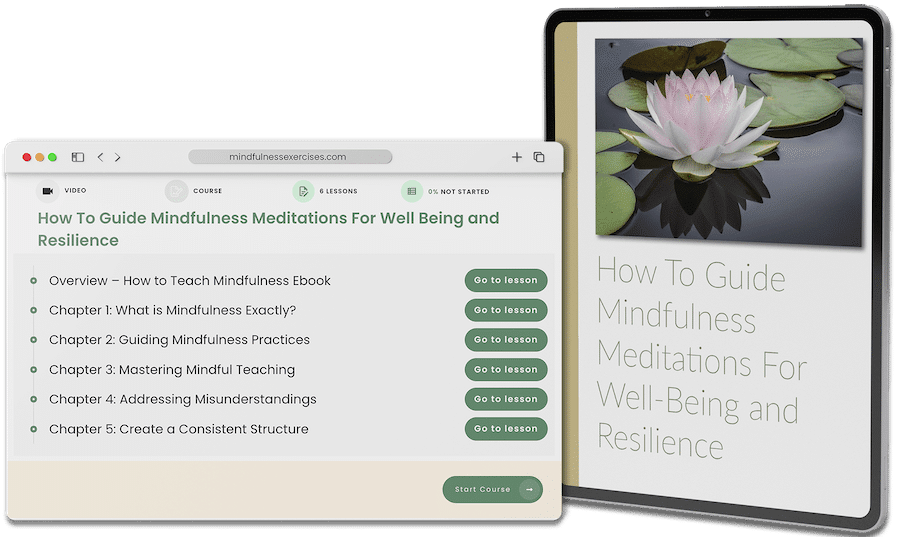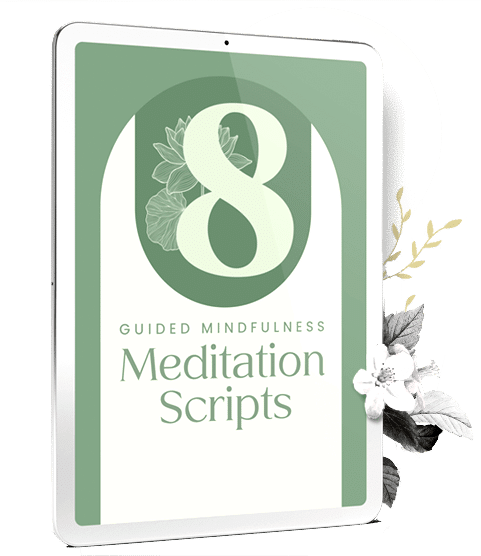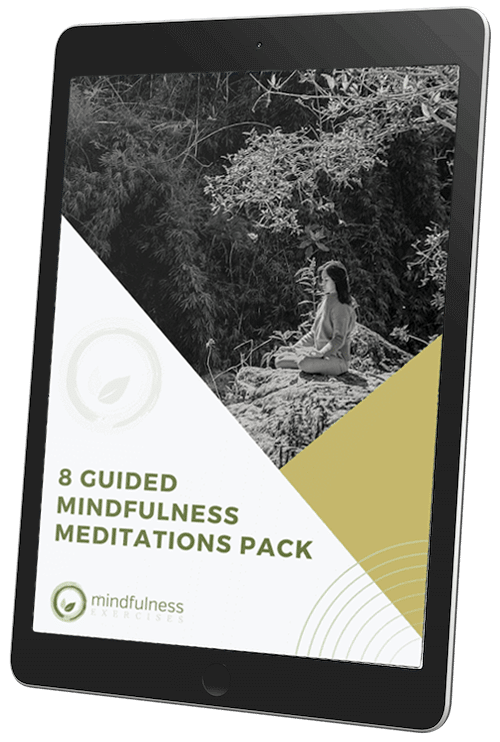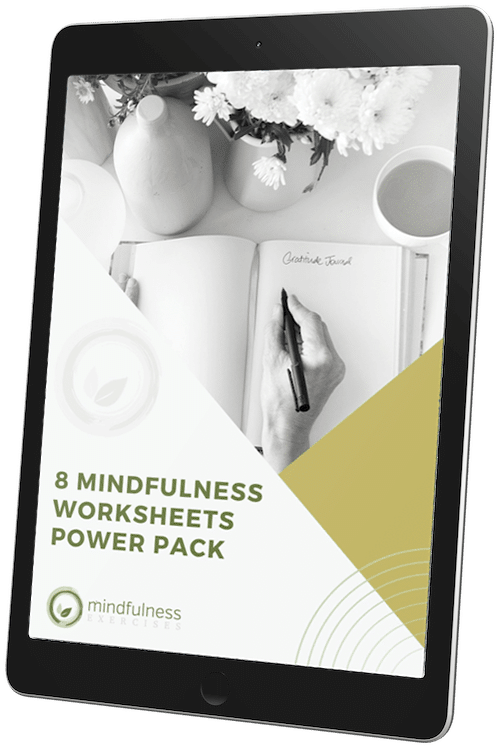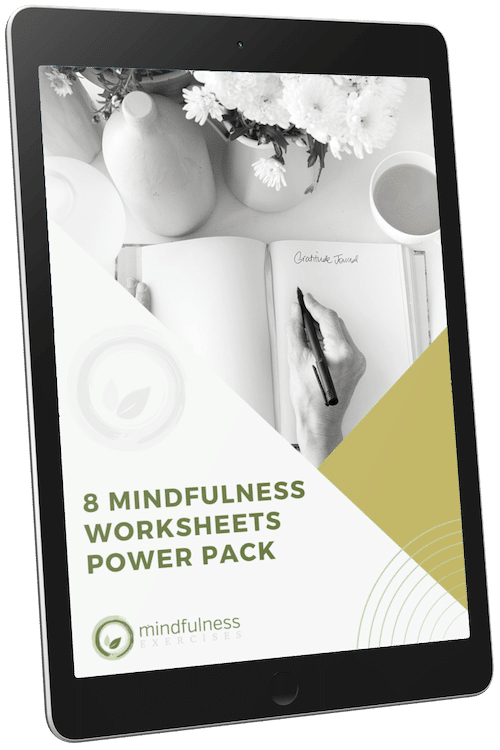
Can you give yourself the same tender, compassionate care that you give to others?
As a mindfulness teacher, your deep desire to help people is a beautiful expression of your kind and loving heart. Yet in the effort to serve others, it can be easy to set your own needs to the side. This can lead to feelings of overwhelm, burnout, and stress while draining your energy from being truly present in your life.
Even while teaching the practice of non-judgmental awareness, integrating self-compassion into your role as a mindfulness teacher can be hard. It’s normal to notice thoughts or feelings of self-judgment, inner criticism, or high expectations throughout your workday. But it’s times like these when you have an opportunity to deepen your mindfulness and self-compassion so that you can feel even more confident as a mindfulness teacher and practitioner.
Whether you’ve been teaching mindfulness for years or are considering getting certified to teach mindfulness, we offer some tips to help you integrate greater self-compassion into your role as a mindfulness teacher. Through this post, we draw on insights from the practice of compassionate inquiry developed by Dr. Gabor Maté.
Learn how to best use compassionate inquiry to help yourself and others overcome difficult emotions, self-judgment, and the inner critic in this Mindfulness Exercises podcast episode with Dr. Gabor Maté and Sean Fargo.
Notice self-judgment with caring curiosity
Through your mindfulness practice, you’re becoming more and more aware of the thoughts and feelings that arise in your mind. When you notice negative inner self-talk bubble up before or while you’re teaching, take a mindful pause. See if you can allow those thoughts and feelings to be there without pushing them away. Create a glimpse of awareness where you recognize that you are not the negative self-talk that’s happening in your head.
Then try using the technique of compassionate inquiry to go deeper so you can address the inner critic at its root level. Developed by Dr. Gabor Maté, compassionate inquiry can help you uncover unconscious dynamics and habits that may be negatively impacting your life.
To practice compassionate inquiry, first recognize the thought, belief, or behavior that might be bringing emotional or mental unease. “What if I disappoint them because I won’t know an answer to their question?” or “What if I’m not doing it right?” may be some common thoughts that arise when you’re teaching mindfulness. Rather than judging yourself for having these thoughts, become curious about them.
“The judgment is just going to happen. It’s automatic. You can no more not judge than you can not breathe. Because the human mind, that’s just what it does. It formulates opinions, it has an emotional reaction to an opinion, and what a judgment is, is an opinion with a negative emotional charge. So, what you do is you notice it.”
- Gabor Maté -
With kindness towards yourself, consider asking questions that allow you to explore any unkind feelings towards yourself such as:
Applying the practice of compassionate inquiry to cope with self-judgments as they arise may help you be with negative self-talk without getting caught up in it. This is the first step to cultivating greater self-compassion for yourself.

Free yourself from the fear of not doing it “right”
Because of the desire to help others, many mindfulness teachers are initially hard on themselves as they strive to get everything “right” or “perfect” for their students. Yet perfection is nothing more than an idea – one that can bring a lot of pain if we identify ourselves with it.
As you share the attitudes of mindfulness with students, you may be teaching them that they don’t have to strive to feel peace in this present moment. So remember, neither do you. You have an innate wisdom that has guided you in the past and will continue to guide you as you teach mindfulness to others.
When you notice that you’re pushing too hard, feeling stressed whether you’ve put together the most helpful mindfulness curriculum, or worried whether you’ll be able to lead the next meditation smoothly, take a moment to reflect on other times you’ve done well in the past. Feel compassion for yourself for wanting to get things done right. Then consider applying compassionate inquiry as outlined above, but now specifically for perfectionist tendencies.
Struggling with perfectionism? Apply compassionate inquiry
Be gentle with yourself as you consider questions like: What might your perfectionism be protecting you from? Is there a fear of disappointing someone? A fear of failure? A fear of being judged by your students or others? As you answer these, don’t judge your answers or feelings. Simply notice each with caring curiosity.
Remember that your desire to be helpful is a result of your loving and caring nature. It’s your sense of compassion that leads you to want to help others. So anytime you feel like you’re not doing enough, or not doing it right, recognize your own sincerity as you grow on a personal and professional level.
Reframe your perfectionism as a sign that you have a caring heart. Acknowledge yourself for your heart-centered intention, courage, and willingness to teach mindfulness and to help others.
Overcome the myth of compassion fatigue
You may have heard terms like compassion fatigue or empathy fatigue before. These generally refer to the idea that you’re spending so much time caring for others that you’re exhausting your own mental, emotional, and physical health. These feelings are often common in the healing professions and can just as easily be experienced by mindfulness teachers.
In the Mindfulness Exercises podcast on coping with difficult emotions, Dr. Gabor Maté suggests that compassion or empathy fatigue is nothing more than a lack of compassion towards ourselves.
We don’t become exhausted from helping others as much as from caring for others at the expense of our own well-being. Not attending to our needs can make us feel underappreciated and overstressed. This can eventually lead to burnout and can even cause many mindfulness teachers to give up and pursue a different path. So to counter this, Dr. Gabor Maté suggests setting healthy boundaries and practicing personal self-care.

Set healthy boundaries without guilt
“Compassionate people ask for what they need. They say no when they need to, and when they say yes, they mean it. They’re compassionate because their boundaries keep them out of resentment.”
- Brené Brown -
Not taking on more than you can handle without sacrificing your own wellness may be one of the most important self-compassion practices you can do as a mindfulness teacher. This may require a more fierce type of self-compassion so that you can tend to your needs without feeling bad or guilty. Leading self-compassion researcher and author Kristin Neff refers to this as a “mama-bear” type of compassion that requires us to set boundaries to protect ourselves.
Perhaps you have a student who frequently calls or messages you on weeknights or the weekends when you’re spending time with your family. Or a student who emails you five times a day, taking up hours that you need to spend on preparing for your next class. Knowing your own boundaries and communicating them to others can be hard at first. But with practice, it can become a more effortless and natural way of caring for yourself.
Dr. Gabor Maté suggests that unless we enforce our own boundaries, we may feel resentment towards those who don’t honor them (even if we’ve never communicated these to them). Asking someone to respect your needs may initially stir up feelings of guilt or “feeling bad.” Yet Dr. Gabor Maté notes that guilt can be a natural indication that we’re doing something for our own self-care.
“When there’s a No that needs to be said, you can choose guilt, or you can choose resentment. Go for the guilt. The resentment is poison…It’s hard, but go for it, you’ll be a lot healthier for it. Eventually, the guilt will give up by the way.”
- Gabor Maté -
To set healthy boundaries without guilt, set clear expectations upfront. Tell your students what to expect from each class as far as support and how to best communicate with you. Although you may first worry that people won’t like this, you may find that most students will happily honor and respect your decisions and guidelines.
Make time for self-care
Take a moment to reflect on moments when people love to be around you. It’s probably when you’re feeling energized, happy, and healthy. Your students are no different. Just like your friends and family members, they can pick up on your energy which may affect their own.
Many might feel uplifted, inspired, or hopeful when they sense ease and comfort coming through your presence as you teach. This is why self-care is an essential component of practicing self-compassion as a mindfulness teacher.
Attending to your personal, physical, and emotional needs is a way of showing yourself that you’re worthy of receiving the same care you provide to others. You’re worthy of taking downtime to simply relax and be. You’re worthy of taking the time to make healthy and nourishing foods for yourself and to exercise your body. If you have a hard time finding the time for self-care, see if you can build it into your daily schedule just as you would any of your teaching or work obligations.
"If I am not good to myself, how can I expect anyone else to be good to me?"
- Maya Angelou -
Lead by example…with compassion for yourself first
As you teach mindfulness, there may be many moments when you recognize you’re being too hard on yourself. Rather than feeling upset about this or judging yourself, use this as a moment of active teaching.
If you forgot to prepare the materials you need to teach a lesson, for example, that might present a great chance to demonstrate compassion towards yourself. Recognize that this might be hard, but notice that you still have your inner wisdom to guide you. Offer yourself some soothing words and a tender touch.
Your presence is the best living example to your students. You may even consider sharing what you’re going through and how you’re navigating it to allow students to see that it’s normal to have self-critical thoughts but that they can choose to respond to them differently. They can always choose self-compassion, just as you can.
As mindfulness teachers, it’s easy to offer compassion outward while struggling to turn it inward. In this heartfelt and practical episode, Chris Germer—co-developer of the Mindful Self-Compassion program—speaks with Sean Fargo about the real-world challenges and transformative potential of self-compassion.
Together, they explore why self-compassion is not weakness but a powerful force for emotional resilience, how to overcome common misconceptions, and how to model compassion in your teaching—not just talk about it.
To learn how to use compassionate inquiry to increase self-compassion, listen to the full episode of this Mindfulness Exercises podcast with Dr. Gabor Maté.
Here are some additional free self-compassion and self-care mindfulness exercises to help you implement these insights:

